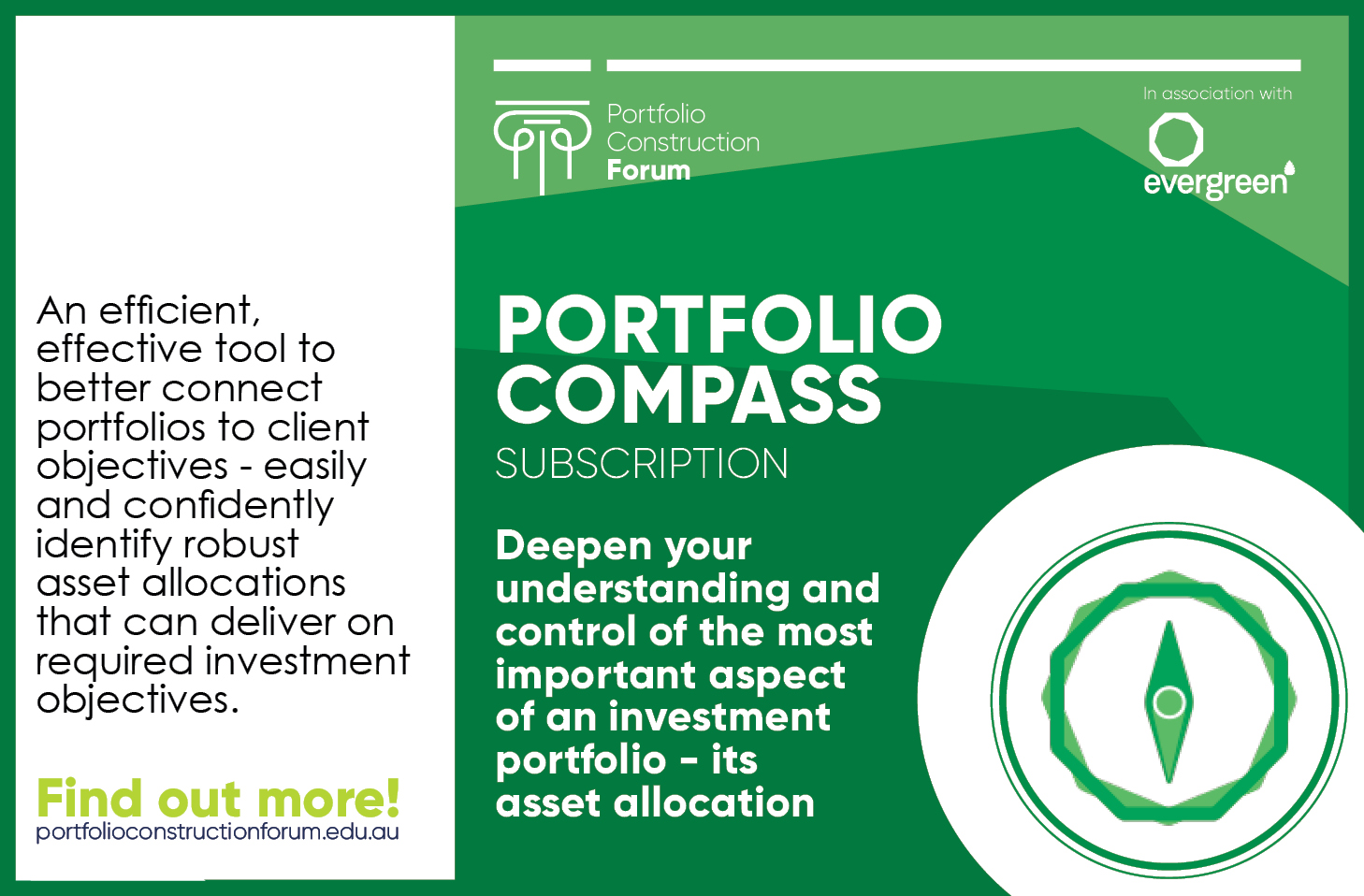Finology Zoominar: ‘50 shades of ESG’ and ‘Work matters!’
We’re very pleased to invite all Forum members to join us as our guest for our first Finology Zoominar of 2021.
The focus of the program is on behavioural finance and investor psychology as we seek to better understand the investor mindset.
-
When: AEST 10am-12.30pm, Wednesday 2021
-
Who should attend: All Forum members are very welcome. This Zoominar is relevant to all wealth management professionals because we all have a responsibility to understand how our own and other people’s different investing biases, beliefs and behaviours impact investment markets and portfolio practices - and therefore investment outcomes. This Zoominar is essential for those whose primary day-to-day role is focused on giving investment advice or supporting those who do.
-
CE/CPD: 2.50 hours (including ASIC, APRA, FASEA, FMA, AFA, FPA and CIMA® CE/CPD hrs)
-
Cost: $0 - this Zoominar is complimentary to all Forum members.
-
Register now: http://ow.ly/rAR830rHkDS
Program and Faculty

50 shades of ESG
There are numerous ESG ratings systems out there – many of which are based on routine questions that focus on box ticking rather than understanding the real motivation of a company. Instead of asking standard questions in search of nuanced scores, we can and should focus on simple and straightforward principles to identify a company’s true purpose and ESG goals. Doing so enables investment advisers to avoid being taken in by short-term “green-washing” and meet their best interests duty obligation to ensure a client’s investments are a sound match with their values.
- Tassos Stassopoulos, Founder & CIO, Trinetra Investment Management (London)
Tassos founded Trinetra in 2016 as a small, dedicated investment boutique using ethnographic research, which involves engaging directly with real people’s lives to understand consumers’ values, hopes and aspirations, in order to anticipate emerging trends and identify companies with long-term growth opportunities.

Work matters!
A key retirement planning decision all clients face is WHEN to retire from work. If they leave work too early, they may be under-resourced and/or bored in retirement, and need or want to return to work later. If they leave too late, the decision of when to leave may be taken from them. What can investment advisers do to help clients reflect more deeply on what matters to them, and help them make better decisions about workplace exit? We’ll explore the psychological models underlying why people leave the work place, and what matters for successful workplace exit.
- Joanne Earl, PhD, Professor, Macquarie University (Sydney)
Dr Earl is a Professor in the Department of Psychology at Macquarie University. She is an endorsed Organisational Psychologist and Registered as a Psychologist in Australia. Jo is one of Australia’s foremost experts on factors affecting retirement decision-making, in particular retirement planning and retirement adjustment, producing research which is regularly published in leading international scientific journals. She is a Member of the NSW Ministerial Advisory Council on Ageing and a member of the ASIC Financial Capability Research Steering Committee.
And:
- Stephen Fitzgerald, Chairman & Founder, Affirmative Investment Management (London)
- Douglas Isles, Investment Specialist with Platinum Asset Management (Sydney)
- Don Hamson, Managing Director, Plato Investment Management (Sydney)
- Jason Komadina, Director – Managed Accounts, MLC Asset Management (Sydney)
- Rob Hamshar, Research Consultant - Investment Management Research Program, Portfolio Construction Forum (NZ)
- Herman Brodie, Founder, Prospecta (Birmingham)
We’d welcome you joining us!
Graham Rich
Managing Partner & Dean, Portfolio Construction Forum






